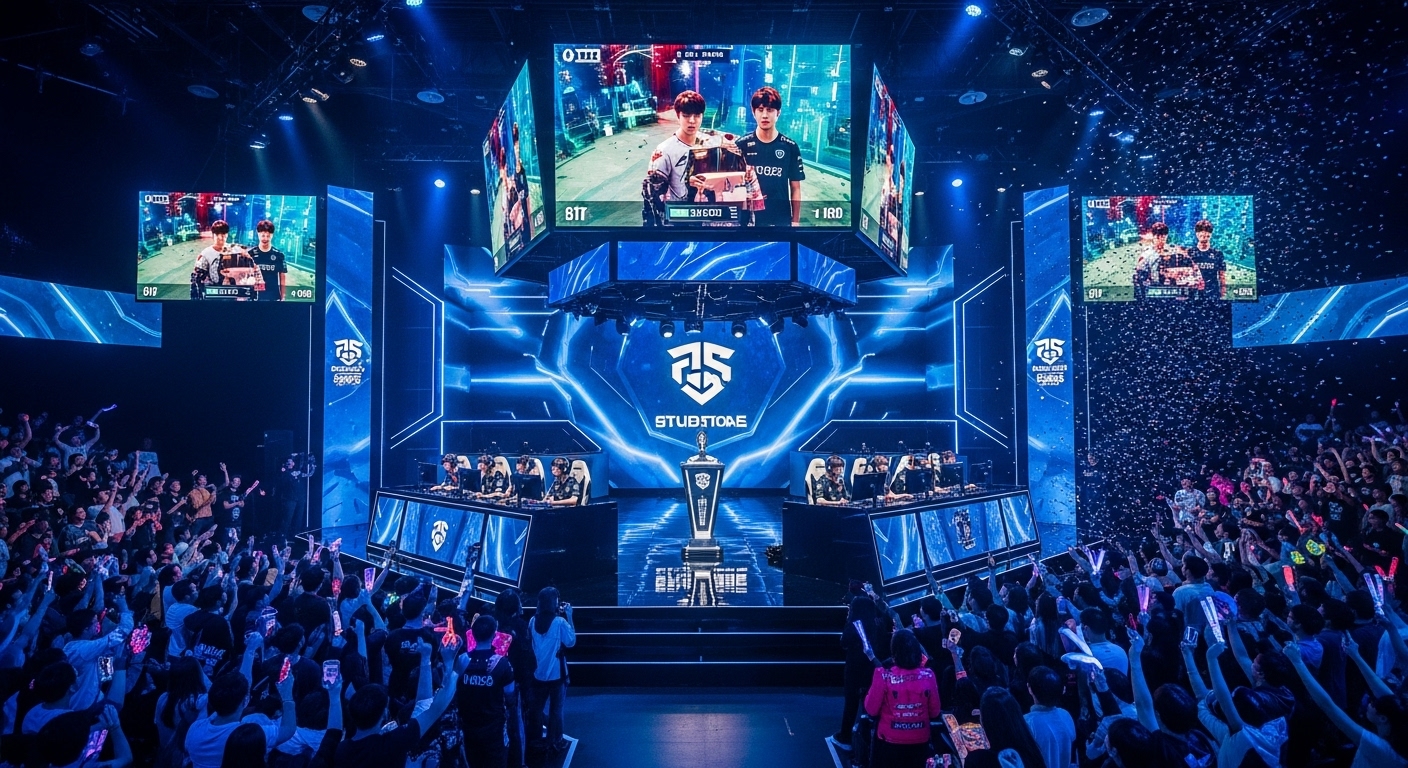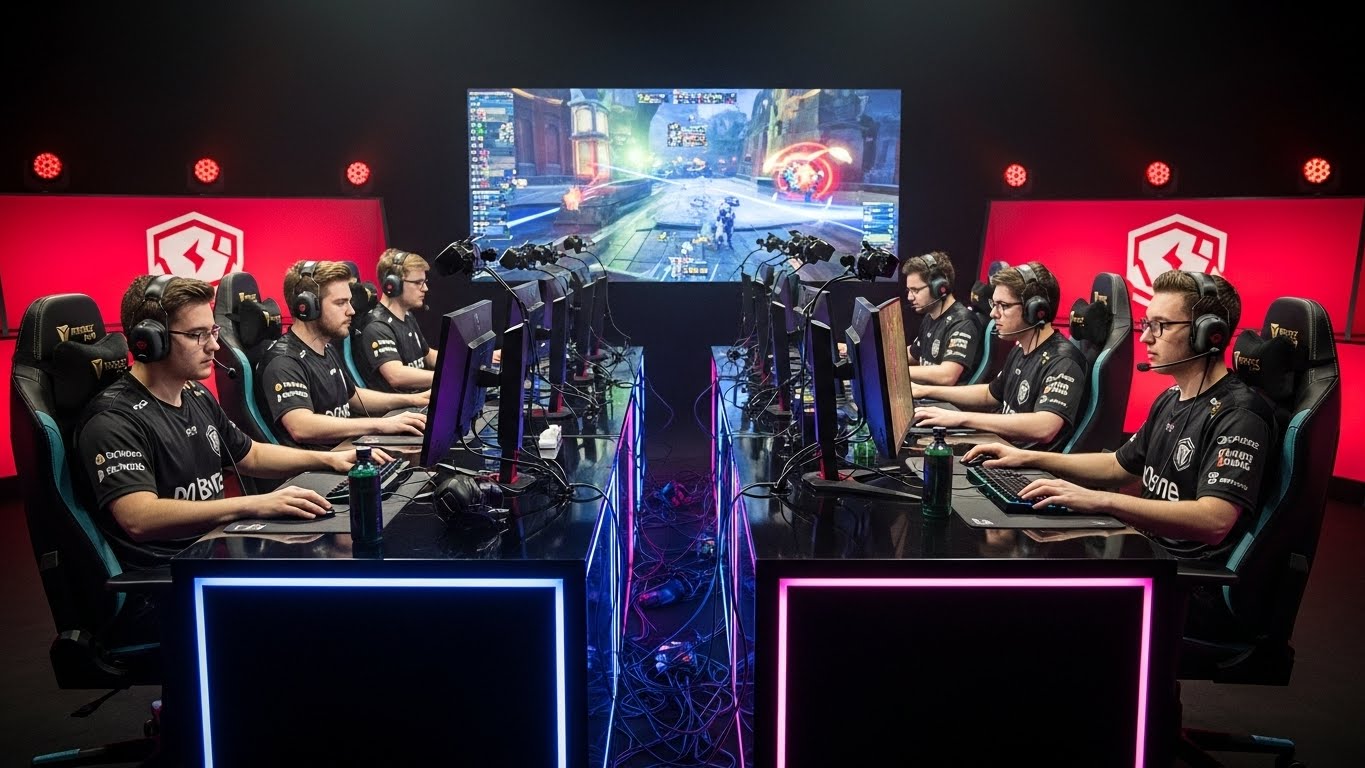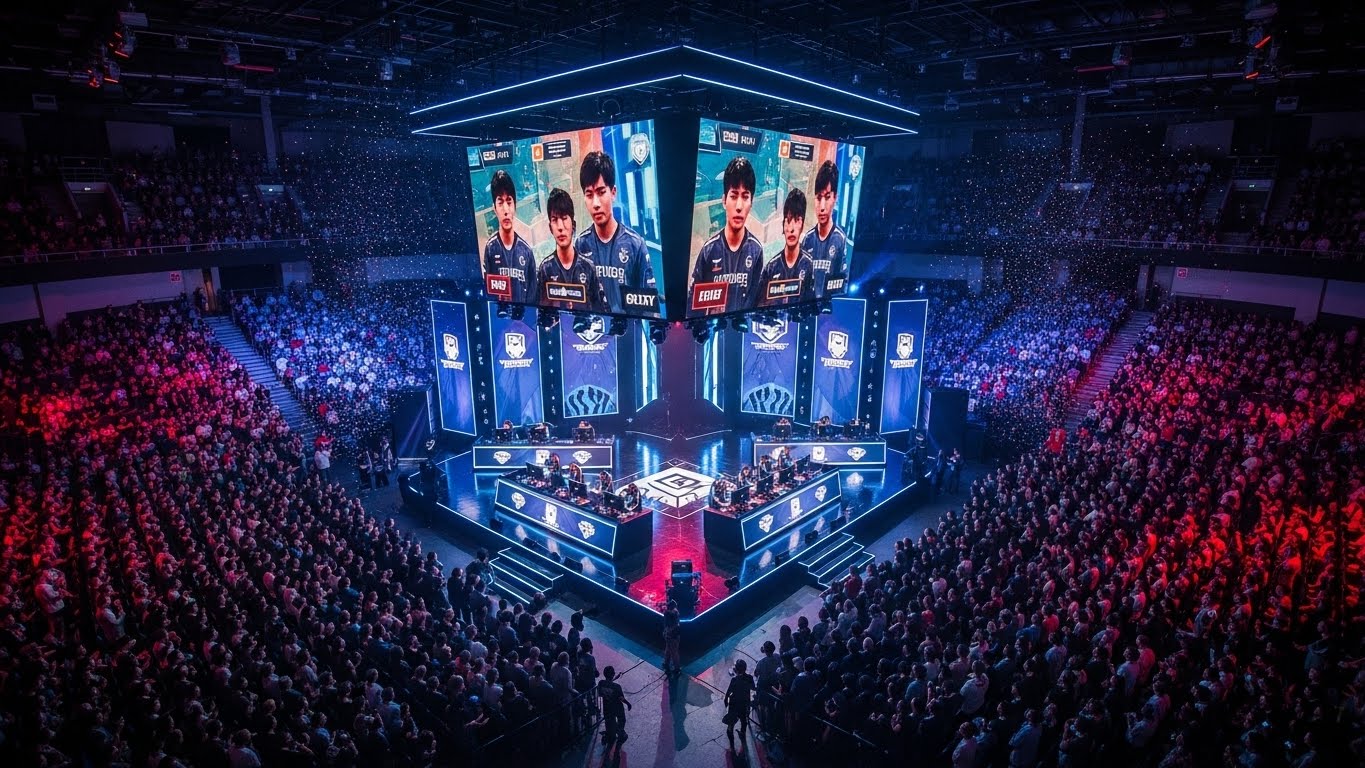Esports, short for electronic sports, has transformed gaming from a recreational pastime into a global phenomenon. Once a niche hobby for a dedicated few, esports now commands the attention of millions of fans worldwide, generates significant revenue, and offers professional opportunities comparable to traditional sports. The rise of esports has redefined how we view competition, entertainment, and community in the digital age. In this blog post, we will explore the history, growth, impact, and future of esports, highlighting the reasons why it has become a central part of modern gaming culture.
The Origins of Esports
Esports has its roots in the earliest competitive video games. During the late 1970s and early 1980s, arcade games like Space Invaders and Pac-Man attracted players who competed for high scores. Early competitions were often small and localized, but they laid the foundation for organized gaming events.
The 1990s brought significant growth in competitive gaming with the advent of multiplayer PC games. Titles like Quake, StarCraft, and Counter-Strike introduced competitive leagues and tournaments that attracted dedicated communities. Internet connectivity allowed players from different regions to compete, setting the stage for the global esports industry we see today.
The Explosion of Popularity
Esports experienced explosive growth in the 2000s and 2010s. The rise of streaming platforms allowed fans to watch professional gamers in real time, making competitive gaming more accessible than ever. Games like League of Legends, Dota 2, and Overwatch became cultural phenomena, attracting millions of viewers and spawning professional leagues with substantial prize pools.
Major tournaments, such as The International and the League of Legends World Championship, demonstrate the scale and spectacle of esports. These events rival traditional sporting competitions in production value, fan engagement, and media coverage. Esports is no longer just a hobby; it is a professional, highly organized industry with global reach.
The Structure of Competitive Gaming
Esports is structured similarly to traditional sports, with leagues, teams, tournaments, and rankings. Players often specialize in specific games or roles, honing their skills through rigorous practice and strategy development. Professional teams have coaches, analysts, and support staff, reflecting the level of professionalism in the industry.
Competitive formats vary depending on the game. Some tournaments follow single or double elimination brackets, while others use round-robin group stages leading to playoffs. Rankings and leaderboards track player and team performance, fostering rivalry and excitement among fans. This structure creates a sense of legitimacy and professionalism comparable to traditional athletics.
Key Esports Genres
Esports encompasses a variety of genres, each with its unique style, strategy, and fan base. Multiplayer online battle arenas, or MOBAs, such as League of Legends and Dota 2, emphasize teamwork, strategic planning, and real-time decision-making. First-person shooters like Counter-Strike: Global Offensive and Valorant focus on precision, reflexes, and coordination.
Other popular esports genres include real-time strategy games, fighting games, and sports simulations. Each genre offers a distinct competitive experience, appealing to different types of players and audiences. The diversity of esports ensures that it can engage a broad range of participants, from casual fans to hardcore competitors.
The Economics of Esports
Esports has grown into a multi-billion-dollar industry, with revenue streams spanning sponsorships, advertising, merchandise, media rights, and ticket sales. Major tournaments offer prize pools that rival traditional sports events, attracting top-tier talent from around the world.
Professional teams often secure sponsorship deals with brands ranging from technology companies to apparel manufacturers, reflecting the commercial appeal of esports. Streaming platforms contribute significantly to revenue, allowing fans to watch live matches, interact with players, and support content creators. The economic impact of esports extends beyond players and teams, creating jobs in broadcasting, event management, and game development.
The Role of Streaming Platforms
Streaming platforms have played a pivotal role in the growth of esports. Platforms like Twitch and YouTube Gaming allow fans to watch live competitions, interact with players through chat, and even participate in community events. Streamers and professional players can build personal brands, connect with audiences, and monetize their content through subscriptions, donations, and sponsorships.
The accessibility of streaming has democratized esports, allowing fans from around the world to experience competitive gaming firsthand. It has also contributed to the rise of influencer culture within gaming, where charismatic players can attract millions of viewers and shape trends within the industry.
Esports as a Career
Esports has become a legitimate career path for many individuals. Professional players dedicate years to developing skills, studying game mechanics, and training with teams. Careers extend beyond playing, including coaching, content creation, analysis, marketing, and event management.
The rise of collegiate esports programs has further legitimized competitive gaming as a career. Universities now offer scholarships for top players, providing opportunities for education and professional development. The growth of esports careers demonstrates that competitive gaming is no longer just entertainment—it is a viable professional pursuit.
The Cultural Impact of Esports
Esports has influenced popular culture, bridging the gap between gaming, entertainment, and social interaction. Professional players achieve celebrity status, fans organize watch parties, and esports events draw audiences comparable to traditional sporting events.
Esports has also fostered global communities. Players and fans from different countries connect through shared experiences, transcending language, geography, and cultural barriers. The sense of belonging and community is a key element of esports’ enduring appeal, making it more than just a competition—it is a cultural movement.
Esports and Technology
Technological advancements have been crucial to the rise of esports. High-speed internet, powerful gaming hardware, and streaming technology have enabled real-time competition across continents. Game developers continuously innovate, balancing gameplay mechanics, updating features, and creating engaging spectator experiences.
Artificial intelligence and data analytics have also transformed competitive gaming. Teams use analytics to study opponents, optimize strategies, and enhance training routines. Virtual reality and augmented reality are beginning to influence esports as well, promising new ways to play and watch games in immersive environments.
Challenges Facing Esports
Despite its rapid growth, esports faces several challenges. The industry must navigate issues related to player health, including mental fatigue, physical strain, and burnout. The intense pressure of competition, travel, and public scrutiny can affect the well-being of professional players.
Esports also faces challenges in terms of regulation, governance, and fairness. Match-fixing, cheating, and disputes over contracts and intellectual property can undermine the integrity of competitions. Addressing these challenges is crucial to ensuring the long-term sustainability and credibility of the industry.
The Future of Esports
The future of esports is promising and filled with potential. As technology continues to evolve, esports will likely become more immersive, accessible, and interactive. The integration of virtual reality, cloud gaming, and AI-driven analytics will redefine competitive play and fan engagement.
Esports may also continue to merge with traditional sports, entertainment, and education. Hybrid events, augmented broadcasts, and gamified learning experiences are likely to expand the reach and influence of competitive gaming. The industry’s growth trajectory suggests that esports will remain a central force in entertainment and culture for years to come.
Conclusion: Embracing the Era of Competitive Gaming
Esports is more than a trend—it is a transformative phenomenon that has redefined gaming, entertainment, and global culture. From its humble beginnings in arcade competitions to its current status as a multi-billion-dollar industry, esports has proven that video games can be a legitimate form of competition, career, and community.
By blending strategy, skill, storytelling, and technology, esports creates experiences that captivate players and fans alike. It offers professional opportunities, fosters global communities, and shapes modern culture in unprecedented ways. The rise of esports is a testament to human ingenuity, the power of technology, and the enduring appeal of competition.
In embracing esports, we recognize that competitive gaming is not just about winning—it is about connection, creativity, and the shared thrill of pushing the limits of what is possible in the digital world. Esports is here to stay, and its influence will continue to grow, shaping the future of gaming and entertainment for generations to come.



